#jean desprez
Text

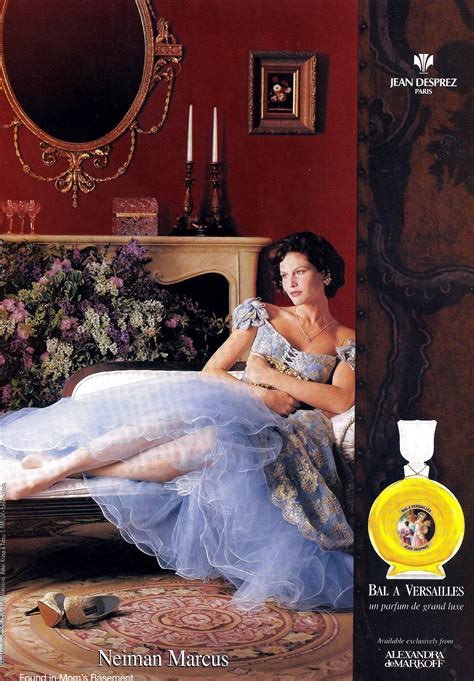

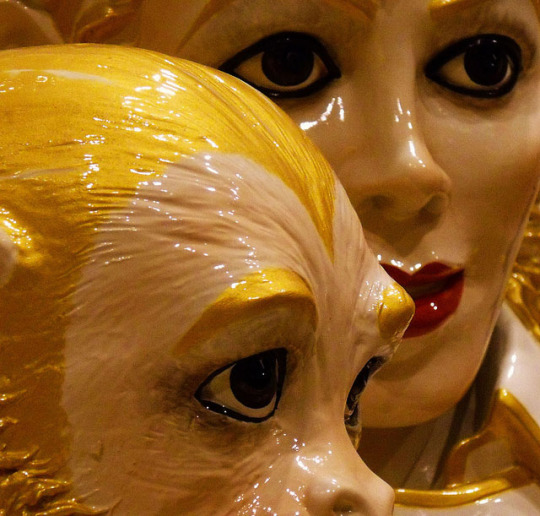






#jean desprez#bal à versailles#michael jackson#e.t. the extra terrestrial#steven spielberg#mysterious skin#gregg araki#leaving neverland#dan reed
9 notes
·
View notes
Text
Vintage Perfume Quick Takes
brief summaries for when I didn't have enough to write for a full review
F. Millot Crepe de Chine
Nose: Jean Desprez
Notes: aldehydes, bergamot, neroli, lemon, orange; carnation, lilac, iris, jasmine, rose, orange blossom, ylang-ylang, elemi; oakmoss, galbanum, heather, sandalwood, leather, benzoin, musk, patchouli, vetiver, cedar, amber
Goes on with a hit of boozy-sweet resins, and quickly fades into a fluffy, chintzy mixed floral, heavy on the rose. I find it forgettable.
It's supposed to be a bitter, sophisticated chypre; maybe I got a suboptimal sample or a bad nose day?
Evyan White Shoulders
notes: aldehydes, orange flower, green notes, peach, bergamot; gardenia, lilac, tuberose, jasmine, lily, lily-of-the-valley, iris, spices; civet, oakmoss, musk, sandalwood, benzoin
Your basic white floral. Smells good, though maybe a little too sweet and creamy for my taste; fades rapidly.
Guerlain Chant D'Aromes
Nose: Jean-Paul Guerlain
Notes: aldehydes, citrus, gardenia, plum; honeysuckle, jasmine, ylang-ylang, clove; heliotrope, vetiver, olibanum, benzoin, vanilla
This was a light, citrusy floral veil with a cuddly-soft drydown. There were some unusual herbal notes, almost like cooking herbs (thyme?). Delicate and pleasant but not too memorable.
Coty L'Aimant
Nose: Vincent Roubert
Notes: aldehydes, neroli, peach, bergamot; ylang-ylang, rose, jasmine, geranium, orchid; musk, sandalwood, vanilla, tonka, vetiver, cedar
This is a bit of formal glass-chandelier sparkle over the usual Coty powder-soft base. A milder, puff-powder version of the classic aldehydic floral. The powder certainly makes it easier to wear, but also less interesting.
It settles into pure powder, musky and sweet and very skin-like.
Guerlain Mouchoir de Monsieur
Nose: Jacques Guerlain
Notes: lavender, bergamot, lemon verbena; neroli, tonka, jasmine, patchouli, cinnamon, rose; vanilla, iris, amber, oakmoss
A wine-dark rose, somewhat tangy; that almost immediately falls into pale powder. Not too sweet, just smells clean and comfortable.
I must be missing most of the complexity because everyone else seems to smell lavender, vanilla, and animalics. I get very little of anything, maybe a little bit of the oakmoss spine or a touch of dry citrus, and clean soft powder.
Caron Tabac Blond
Nose: Ernest Daltroff
Notes: carnation, leather, linden; iris, ylang-ylang, vetiver; vanilla, musk, patchouli, cedar
Goes on with smoky, sweetened leather. a soft powdery landing. pleasant but not memorable. Basically Bellodgia with a leather top.
#perfume#fragrance#caron#guerlain#coty#evyan#f. millot#ernest daltroff#jacques guerlain#jean-paul guerlain#vincent roubert#jean desprez
9 notes
·
View notes
Text


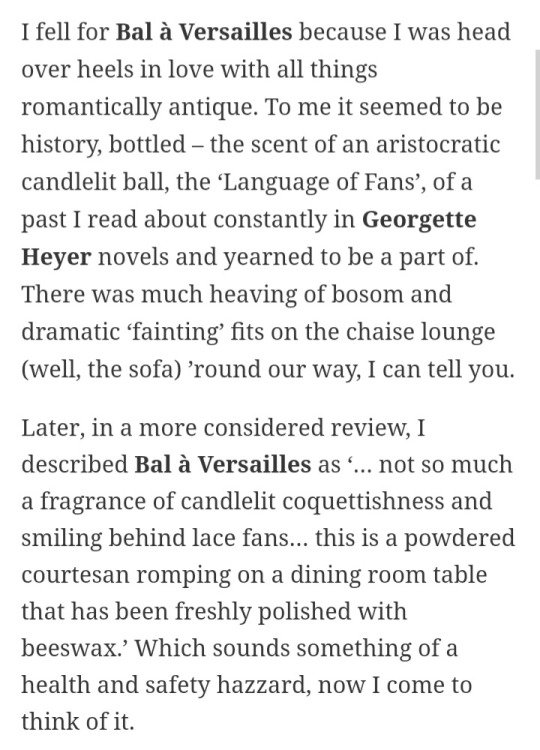
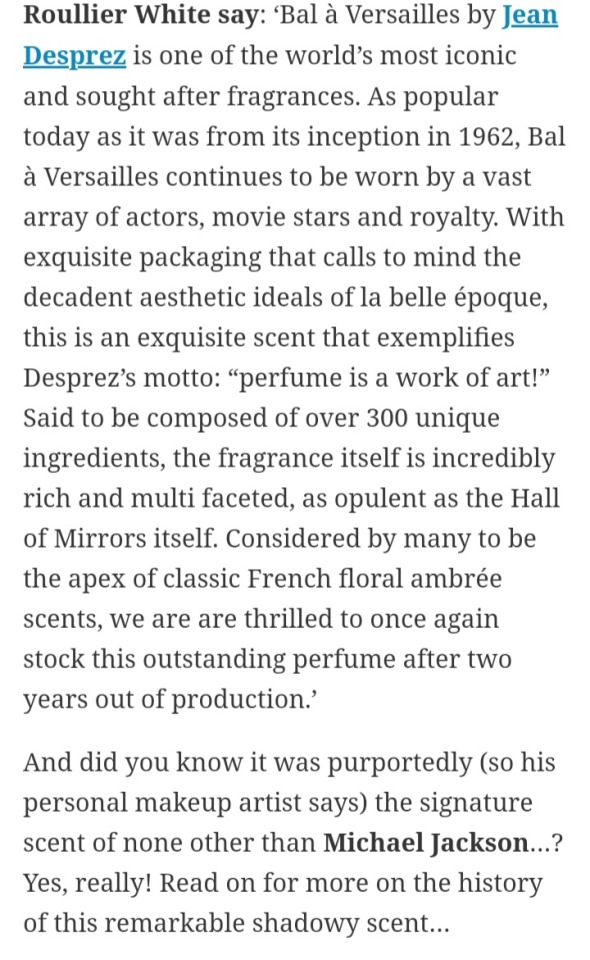

#perfume#bal a versailles#georgette heyer#mj#michael jackson#antique#antique market#black orchid#tom ford#karen faye#jean desprez
2 notes
·
View notes
Text

Vintage 💭
2 notes
·
View notes
Text
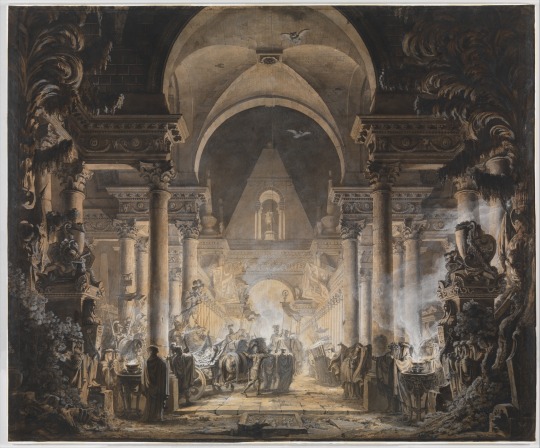
The Tomb of Agamemnon by Louis Jean Desprez
#agamemnon#tomb#art#louis jean desprez#greek mythology#mycenae#mycenaean#king#architecture#funeral#ancient greece#ancient greek#history#antiquity#classical antiquity#europe#european#greek#greece#mythology#ancient#ancient world#funerals
551 notes
·
View notes
Text

Monument for the Temple of Immortality (detail) by Louis-Jean Desprez (c. 1790)
1K notes
·
View notes
Text

Ancient Scene with a Funeral Ceremony for an Actor by Louis-Jean Desprez
French, c. 1777
pen and black ink and watercolor
Metropolitan Museum of Art
#neoclassicism#ancient scene#Louis Jean Desprez#French#art#watercolor#Metropolitan Museum of Art#Louis-Jean Desprez
287 notes
·
View notes
Text

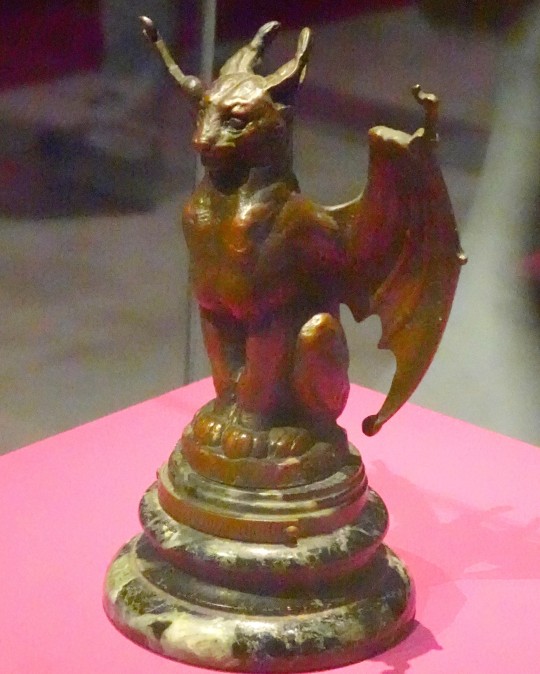

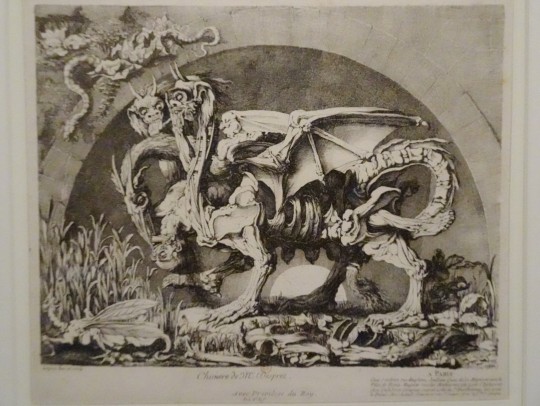
Il y a une petite quinzaine, je suis allé avec Julien et Katie, au Louvre-Lens pour une expo temporaire : "Animaux Fantastiques". Une très belle expo !
Ici des êtres indéfinissables et des chimères !
Thomas Grünfeld - "Misfit (flamingo-pig)''
Antoine-Louis Barye - "Chimère"
Jean-Joseph-Marie Carriès - "Grenouille aux oreilles de lapin"
Louis-Jean Desprez - "Chimère de Monsieur Desprez"
#expo#louvre-lens#animaux fantastiques#monstre#créature#thomas grünfeld#flamant#porc#hybride#chimère#barye#antoine-louis barye#carriès#jean-joseph-marie carriès#grenouille#desprez#louis-jean desprez
8 notes
·
View notes
Text
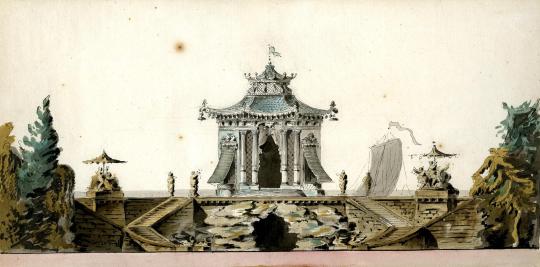

Designs for a Chinese pavilion by a river, elevation and cross section, attributed to Louis-Jean Desprez. French, c. 1775. In the collection of the British Museum.
#Chinese pavilon#chinoiserie#Louis-Jean Desprez#Louis Jean Desprez#art#works on paper#French#British Museum
12 notes
·
View notes
Text
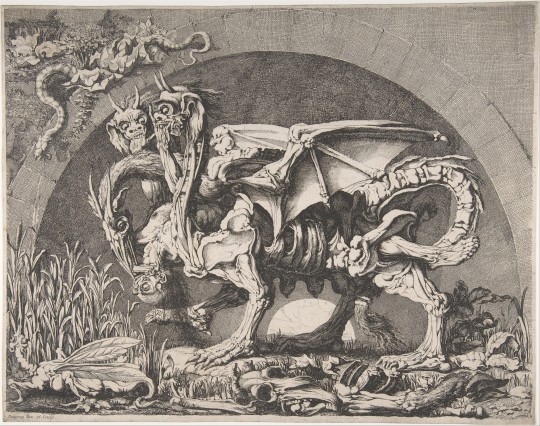
Louis Jean Desprez - La Chimère de Monsieur Desprez
52 notes
·
View notes
Text









#jean desprez#bal à versailles#michael jackson#e.t. the extra terrestrial#steven spielberg#mysterious skin#gregg araki#leaving neverland#dan reed
6 notes
·
View notes
Text
That one time, when Soult accused Joseph of treason … (Part 4)
Yes, there’s a part 4. Because Joseph’s letter about the outrageous suspicions Soult held about him actually did reach its destination, brother dearest Napoleon, despite the fact this was 1812, the year of the Russian campaign.
So what if there was a major war going on? Joseph’s royal dignity was compromised! First things first!
And just for the record: Here are Part 1, Part 2 and Part 3 of this little royal drama.
The fact Joseph’s letter actually was carried through all the obstacles to its recipient as far as Moscow says a lot about the dedication of its courier, Colonel Desprez. Whom I imagine a bit like a gauche version of Duroc. At least he seems to have had Duroc’s sense of tact. Desprez had been sent by Joseph to meet and discuss with Soult some time before the battle of Salamanca and seems to have managed to remain in good graces with both men, which cannot have been a small feat. Fun fact: Desprez’ daughter would one day become the second wife of Soult’s son.
Here’s what Madame la comtesse Merlin has to say about this aide de camp of Joseph’s:
We often saw Colonel Desprez, aide-de-çamp to the king. He was highly educated, and had, in addition, an innate taste for beauty. He was as sensitive as a woman, though a little caustic. He often got distracted in ways that made him seem quite likeable. But if one came to tell of some good or honourable deed, then his eyes moistened; one could see that he was on board. His clumsiness was inimitable: he never entered a salon without bumping into all the furniture, he would cling to the women's dresses or jump over the tabourets with both feet, which amused us greatly. Among the people I knew at that time, he is one of the few who have always kept my memory and friendship. Consistency in affection was neither the least rare nor the least valuable of his qualities.
So, this amiable if a little clumsy guy was on his way to convey to Napoleon all his brother's fury over Marshal Soult. His first stop, however, was in Paris, with Clarke, in order to inform him – not of Soult’s suspicions about Joseph (that was for Napoleon only), but about his disobedience when Joseph ordered him to send 10,000 men to Madrid, and about the general situation in Spain after the battle of Salamanca. Desprez sent a report to Joseph before setting out again:
Paris, 22 September 1812
Sire, I arrived in Paris yesterday, 21st of this month. I presented myself at once to the Minister of War, and gave him the letter of Your Majesty, as well as those of Marshal Jourdan. His Excellency questioned me about the affairs of Spain, but without asking me for my dispatches for the Emperor; he has, in accordance with Your Majesty's intentions, provided me with the necessary directives to continue my journey with celerity.
This morning the Minister sent for me, and I had a long conference with him. He urged me to explain to him with frankness what I had noticed during my stay in Andalusia, and showed me some concern about the influence which the Marshal could exert both on the army and on the civil authorities.
Needless to say, Clarke had swallowed the Roi Nicolas stories hook, line and sinker.
He recalled the intrigues of Portugal, and concluded by telling me that he was shedding the character of minister before me in order to talk with a man of your confidence, and that the services which you had rendered him at the time of his disgrace should be a guarantee for Your Majesty of the desire he had to act according to your instructions.
Clarke: So, does Joseph want to get rid of Soult? I’m all yours!
However frank these overtures may have seemed to me, I did not think it necessary to speak of the most delicate part of my mission. I only replied that the army of the south would always be that of the Emperor; that when His Majesty sent his determined orders, he would be obeyed; and that all that I had heard in Andalusia left me no doubt on this subject.
I am not sure if Desprez here really gave the answer Joseph expected or wanted to hear. Actually, Desprez almost takes Soult’s side and defends him against the accusations.
Moreover, my conversation with the Duc de Feltre proved to me that no letter of the nature of that of which I am the bearer had yet reached him, and this is a favourable circumstance for my mission.
I spoke with His Excellency about the resistance which the chiefs of the French army in Spain had always opposed to Your Majesty's orders. He declared that all had been placed under your orders, and without any restriction; that before his departure, the Emperor had expressed his astonishment at the doubts which Your Majesty's letters showed in this respect, and that he had ordered that his intentions be made known in an even more positive manner. [Some discussion about Suchet – sic! -, Dorsenne and Caffarelli refusing to obey Joseph’s orders.] As to the formal disobedience of Marshal Soult, His Excellency said at first that Your Majesty had the right to take away his command; but he then agreed that a similar step could only be taken by the express order of the Emperor.
Because - of course Joseph is in command – but not that much in command.
The minister also entered into some details on the military affairs. The orders given by Your Majesty and by Marshal Jourdan, at the various times of the campaign, have had, he told me, the general approval; and what the Emperor has written, since he learned of the battle of Salamanca, proves that he gives Your Majesty full credit. Public opinion, in this respect, is even more pronounced than that of the men in office; and I cannot express to Your Majesty with what rigour Marshals Soult and Marmont are judged in France. […]
Well, we’ll see about that. In particular as far as little brother Napoleon is concerned.
After having sent off this letter to Joseph – it’s actually a lot longer, I only cited the parts concerning Soult -, Desprez started for Germany and Poland, where he hoped to still reach Napoleon. In vain. The Grande Armée was already wading knee-deep in shit on its way to Moscow.
And Desprez followed them. All the way to, by then, burnt down Moscow. And despite all the cossacks waylaying French couriers, he actually got there.
On 18 October, the day before Napoleon’s army left again.
So, perfect timing. Just the right moment to treat Napoleon with yet another chapter out of the endless story of Joseph versus Soult. Some of Napoleon’s reaction can be guessed from the brief letter to Clarke that he sent off on the next day.
From “The Confidential Correspondence of Napoleon Bonaparte with his brother Joseph”, Volume II
Moscow, 19 October 1812
Monsieur le Duc de Feltre,
an aide-de-camp from the King of Spain has brought letters to me dated the first week in September. You are aware that at this distance I can do nothing for the armies of Spain.
Translation: Clarke, you dimwit, was that really necessary? Could you really not deal with that yourself?
Let the King of Spain and the Duke of Dalmatia know how little help they are to expect, […]
The Duke of Dalmatia of course being Soult. and it’s a little weird that he is so specifically mentioned here, even if it’s mostly a reply about his quabbles with Joseph. Joseph’s chief-of-staff and military adviser at the time was Marshal Jourdan.
[…] and how necessary their present situation makes it that they should unite, and diminish as much as is in their power the disasters caused by a pernicious system; that it was very absurd in the King to allow 400 men to be taken at Guadarrama, and 1300 at the Retiro; […]
Joseph, while retreating before Wellington after the battle of Salamanca, had left garrisons in several places, that of course all were taken prisoner. So had Marmont (see below).
[…] these men were of use against the town and the guerillas, but were incapable of making a defence against any other enemy; that it is grievous that the Duke of Ragusa permitted garrisons to be taken at Salamanca, Toro, Zamora, etc. Such events are calamities.
Write to the King that I desire that such things may not recur; that Lerida, Tarragona, and the other fortresses in Catalonia must be blown up; that if we are to lose this frontier, it must not be left in a state in which it would be difficult to take it again. I have given this order repeatedly. [...]
So much about Joseph’s orders finding general approval, as Clarke had said to Desprez. What I notice most in this letter, actually, is a conspicuous lack of criticism with regards to a certain Marshal Soult.
Finally, there is Desprez’ report about how his interview with Napoleon went. A report Desprez could only give several months later, as he first had to join and experience the retreat from Moscow with Napoleon’s Grande Armée. Again, all the way. Probably not quite what he had signed up for when he started out on his journey to deliver one stupid letter.
Paris, January 3, 1813.
Sire,
I have already had the honour of announcing to your Majesty my arrival in Paris; but as the express was my means of communication, I was forced to use the utmost discretion. The Queen having advised me to write to you in detail, and offered to send my letter by the first courier whom she despatches, I take the opportunity of giving an account to your Majesty of the result of my mission, and of some of the events which I have witnessed.
I arrived at Moscow on the evening of the 18th of October. The Emperor had just heard that the advanced guard, under the command of the King of Naples, had been attacked, and forced to retreat with only part of their artillery. The withdrawal of the troops was already decided upon, and they had begun to put themselves in motion. My arrival was announced to his Majesty, who returned at first an answer which was but little favourable.
Napoleon: No. No way. Uh-uh. Cossacks, fires, Kutusov and tsar Alexander I can deal with. But I’m not ready for another round of Joseph whining to me because someone has stepped on his precious toes!
However, in the middle of the night I was called.
Napoleon, talking to himself: Okay, Naps. You are a strong mighty emperor. You have dealt with Eugène after Salice, you can do this. It might be important. Joseph might have lost yet another big battle, our troops might be in full retreat already, you have to know about this… Get this guy in!
I delivered to the Emperor the despatches with which your Majesty had intrusted me, and, without opening them, he questioned me as to the contents; he then made upon the campaign some of the reflections which your Majesty anticipated.
Which is kinda funny. The same thing had happened during the interview with Clarke. Apparently Joseph knew quite well what his brother would reproach him for, and he had briefed Desprez accordingly.
He said that your march to assist the army of Portugal was commenced too late; that it might have been made a month sooner; [… a whole page of detailed criticisms, ending with: ...] that, at any rate, when this retreat was resolved on, the garrison should have been withdrawn from the Retiro, all the gun-carriages broken up, the eagles carried off, and the clothing burnt; that he never had considered this post as fit for more than to keep down the people of Madrid; that, as the enemy was master of the field, it should have been abandoned to him; and that of all the faults of the campaign this was the one which he least understood. I answered these remarks in the manner agreed upon with your Majesty.
At which point an obviously curious English editor commented that unfortunately there was no hint of what this answer might have been, as this behaviour by Joseph indeed seemed rather extraordinary and hard to explain.
The Emperor then proceeded to the Duke of Dalmatia's letter; he told me that it had already reached him through another channel, but that he had attached no importance to it; that Marshal Soult was in error; that he could not attend to such trifles while he was at the head of 500,000 men and engaged in enormous undertakings - these were his expressions; that, however, the Duke of Dalmatia's suspicions did not much surprise him; that they are shared by many generals belonging to the army of Spain, who think that your Majesty prefers Spain to France; that he was convinced that you had a French heart, but that those who judged you by your public speeches might think otherwise.
Napoleon: So, you’ve come to me, on the evening of our retreat from Moscow, to tell me that Joseph is mad at Soult.
Desprez: Yes, Sire.
Napoleon: And he’s mad because Soult thinks Joseph’s secretly in league with the enemy.
Desprez: Yes, Sire.
Napoleon: Well, OF COURSE Soult does. Everybody does. What does Joseph expect with the way he’s talking?
He added that Marshal Soult's was the only military head in Spain; that he could not withdraw him without endangering the army; that, on the other hand, he was perfectly easy as to Marshal Soult's intentions, as he had just learnt from the English newspapers that the Marshal was evacuating Andalusia, and joining the armies of the centre and of Aragon […]
The irony of Napoleon having to learn what was really going on in Spain from British newspapers!
[…] that this junction will make them strong enough to take up the offensive; that he had no orders to send; that it was impossible to give orders from such a distance; that he did not disguise from himself the extent of the evil; and that he more than ever regretted that your Majesty had not followed his advice not to return to Spain.
This is a really interesting last sentence. Mostly, people seem to have thought that, when Joseph returned to Spain after his visit to Paris in 1811, he did so because Napoleon had sent him back. Unless this is an attempt by Napoleon at gaslighting, this would mean that Joseph in 1811 actually had the option to remain in France. But chose to go back and continue to play king.
I’m leaving out most of the rest, the letter is quite long and describes some of the retreat. In short, Desprez managed to get himself attached to Mortier’s staff, because he feared if he stayed with Napoleon he would not be allowed to leave for Spain again. He witnessed the total destruction of Napoleon’s army and most likely was the first to tell Joseph precisely how bad the situation truly was. He only hints at how this had affected him personally:
Having reached Wilna a short time after the Emperor left it, I obtained the Duke of Bassano's permission to proceed to Paris and wait there for orders. In a former letter I had the honour of announcing to your Majesty that the state of my health forced me to postpone my return to Spain.
Desprez ruining his health just so Napoleon could basically give him a shrug.
And that’s where this story ends. For now. Joseph would continue to harrass Soult, Soult would continue to disobey Joseph’s orders, and both would continue to write to Napoleon and Clarke, Joseph: Get Soult out of here! and Soult: Get me out of here!, until finally, in February 1813, Napoleon gave in and recalled Soult to France. Joseph finally had his wish and was the sole, unopposed master in all things military.
Next stop: Battle of Vittoria...
#napoleon's family#napoleon's marshals#joseph bonaparte#jean de dieu soult#poor Desprez#i hope he at least didn't bump into much furniture during his journey#peninsular war#russian retreat#clarke
9 notes
·
View notes
Text

Louis Jean Desprez- Tomb with Death Enthroned as a Sphinx
2 notes
·
View notes
Photo
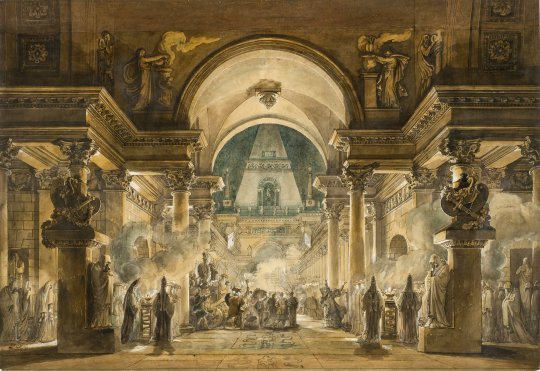

Funeral Procession of Agamemnon
by Louis Jean Desprez
14 notes
·
View notes
Text

The Girandola at the Castel Sant'Angelo by Louis-Jean Desprez and Francesco Piranesi
#girandola#castel sant'angelo#rome#italy#art#louis jean desprez#francesco piranesi#fireworks#fortress#mausoleum of hadrian#river tiber#carriage#carriages#spectators#crowd#crowds#rockets#explosion#night#sky
107 notes
·
View notes
